Another term for the Gambia’s ‘accidental president’?
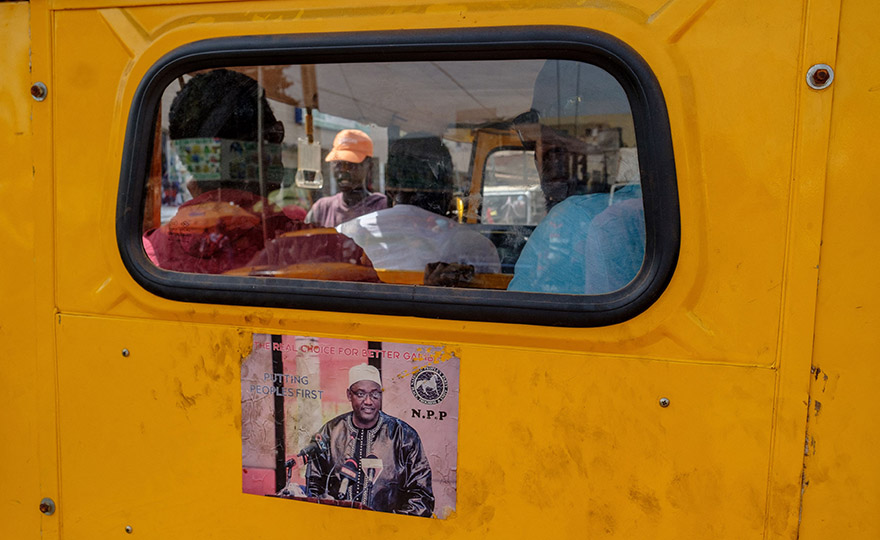
Adama Barrow defeated the Gambia's authoritarian leader Yahya Jammeh at the polls five years ago, against all odds. The 4 December vote is seen as a litmus test for the country's democratic transition. Photo: Guy Peterson/AFP
On 4 December, the Gambia will hold its first presidential election since Gambians ended the 22-year authoritarian rule of Yahya Jammeh at the polls five years ago. However, a deal between incumbent President Adama Barrow and the party of the exiled Jammeh have cast doubts over Barrow’s dedication to democracy and national reconciliation.
In the December 2016 polls, the politically inexperienced Barrow, who was acting as the stand-in head of an opposition coalition, defeated Jammeh against all odds. After a six-week deadlock, which followed Jammeh’s move to challenge the result, the Gambia’s long-time leader fled the country in early 2017.
Barrow has been called ‘the accidental president’, since his only previous political experience before beating Jammeh at the ballot box in 2016 had consisted of losing in parliamentary elections nine years earlier. When popular opposition leader Ousainou Darboe and other senior members of the United Democratic Party (UDP) were detained in April 2016 for participating in street protests, Barrow was selected to head the UDP-led coalition.
Initially, Barrow was meant to serve as a transitional leader for three years, but instead decided to finish his tenure. Darboe, who served as vice-president and foreign minister under Barrow, was sacked after falling out with the president for reportedly refusing to endorse his bid for a second term in office. In 2019, Barrow registered a new party, the National People’s Party (NPP), in pursuit of a second term.
Now the incumbent president and his former benefactor are the main opponents in what is expected to be a tight political race on 4 December.
Since coming to power, for the most part Barrow has maintained trust in the country’s democratic institutions, according to Ismaïla Sarr who was a member of the Democratic Union of Gambian Activists, one of many civil rights groups which fought to kick Jammeh out of office.
“You must give the president credit because there is some freedom of expression now. Six years ago I would not have been able to talk openly with a research institute in Sweden. And nowadays you don’t hear about people being tortured by the security forces, which was common during Jammeh’s days”, says Sarr who lived eight years in self-imposed exile in the Republic of Ireland before returning to the Gambia in 2017.
However, these trends were thrown into question when in September Barrow’s NPP announced a pact with the Alliance for Patriotic Reorientation and Construction (APRC), Jammeh’s old party.
“The case of the Gambia shows the difficulties of institutionalising political parties in a way that their political programme and support base are clear to ordinary voters. The move of a current ruling party to form an alliance with its main opposition is not that uncommon in Africa”, says Liisa Laakso, democracy researcher at the Nordic Africa Institute.
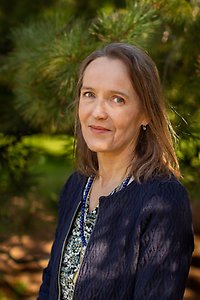
Liisa Laakso.
The ruling NPP’s agreement with APRC have made many Gambians question Barrow’s dedication to the Truth, Reconciliation and Reparation Commission (TRRC), which is supposed to hear victims and perpetrators of human rights violations committed during the 22 years of Jammeh’s regime. The TRRC has yet to submit any findings.
“If there are expectations in society that the government will deal with injustices of the past, and those expectations are not fulfilled, then many people will feel betrayed by the government”, Laakso says.
The NPP-APRC deal sparked speculation that the former ruling party would get a role in the next government and that its exiled leader would be offered amnesty and have his assets returned. The result, however, was a split within the APRC, with the NPP making a deal with the faction of APRC Secretary-General Fabakary Tombong Jatta, not with Jammeh.
“While the specifics of the negotiations are unknown, it is clear that it would have been very difficult for Barrow to give amnesty to Jammeh. The former president killed a lot of people in his own country, but also made enemies across the region. Senegal, Guinea, all of ECOWAS [Economic Community of West African States], want stability, and they don’t want Jammeh back”, says senior NAI researcher Papa Sow.
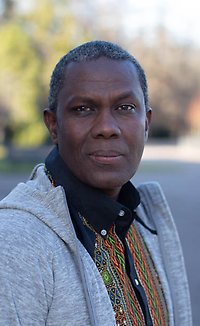
Papa Sow.
Jammeh instead urged his faction to join forces with a third candidate, Mama Kandeh of the Gambia Democratic Congress.
“You have to remember that Jammeh was only beaten by 19,221 votes in the 2016 election. He still has the support of many people in the country. At this moment, people are saying that Mama Kandeh has a chance to win because he has the support of the former president”, says Sarr.
As election day draws closer, the rhetoric of Barrow and his inner circle has become increasingly bold and aggressive, according to Sarr.
“The president and his supporters have been saying in public that losing the election is worse than dying. This is making people uneasy. If he is defeated, will he accept it or are we going to have an impasse 2.0?”, says Sarr, drawing parallels with Jammeh’s move to dispute the election result in 2016.
Barrow appears to have the upper hand, thanks to a range of alliances designed to drum up votes, according to Sarr. Besides the deal with a faction of the APRC, he has also joined forces with the People's Progressive Party, which is the party of the Gambia’s first president Dawda Jawara, as well as the National Convention Party, which is the party of the Gambia’s first vice-president Sherrif M. Dibba.
The Barrow government has invested heavily in infrastructure, constructing bridges over the Gambia River, building roads to connect towns and villages, and opening high schools and colleges in rural communities.
“The incumbent president is very strong in rural areas among the farming communities”, Sarr says.
His main opponent, Ousainou Darboe of the UDP, has traditionally drawn support mainly from urban parts of the country, where 60 percent of Gambians live.
While the difficulties involved in institutionalising political parties are a cause for concern, it is important to remember that the Gambia is still recovering after 22 years of authoritarian rule, according to Laakso.
“The fact that elections are being held is positive. And research has shown that with new elections held regularly, there is a good chance of the quality of democracy slowly improving”.
TEXT: Mattias Sköld
The key players of the presidential race

Adama Barrow
Party: National People’s Party (NPP)
Incumbent presidential candidate. Surprisingly beat the Gambia’s longtime leader Yahya Jammeh at the ballot box in 2016, as head of a UDP-led coalition. In 2019 he formed the NPP as a vehicle to seek a second term in the upcoming election.
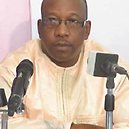
Mama Kandeh
Party: Gambia Democratic Congress (GDC)
Kandeh came third in the 2016 polls. Used to play a leading role in APRC before being expelled and forming the Gambia Democratic Congress. Is reported to have the support of the APRC faction of Gambia’s exiled leader Yahya Jammeh.
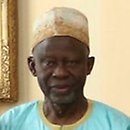
Ousainou Darboe
Party: United Democratic Party (UDP)
For two decades, Darboe was Jammeh’s nemesis as leader of the UDP, the country’s largest opposition political force. Now he is the main challenger against the sitting president.
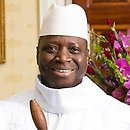
Yahya Jammeh
President of the Gambia from 1996 to 2017, when he went into exile in Equatorial Guinea. Accused of having stolen millions of dollars from the country's coffers to fund a life of luxury. Also charged for human rights violations, and for having raped a number of young women, all of which he denies. Still has major influence in Gambian politics and controls a faction of his old party APRC.
